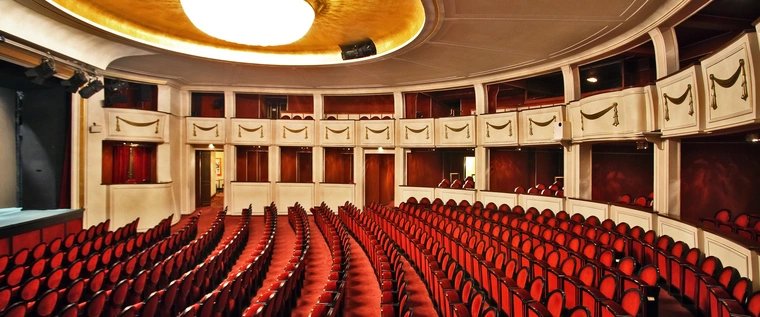
Thomas Müntzer, the first German revolutionary of the modern era, had, as Heiner Müller wrote, the "globe at his neck" and the capitalism of the early modern period in mind—at the price of leading his peasants to their deaths under the banner of the rainbow flag.
The reception of Müntzer and his remembrance were limited to the GDR: There was no district in which at least one agricultural cooperative and one school were not named after Thomas Müntzer. The man from the five-mark note, after whom Müntzer streets, singing clubs, and pioneer camps were named, disappeared into the archives after reunification.
The revolutionary mystic and peasant warrior, conjured up by Ernst Bloch and Friedrich Engels, has long haunted the walls of the Volksbühne. In 1925, Piscator wanted to perform the didactic play "Thomas Müntzer" by the communist playwright Berta Lask, dedicated to the German proletariat. It was censored. Müntzer reappeared on the stages of East Berlin in Friedrich Wolf's Peasants' War dramas, while at the Freie Volksbühne in the west, Dieter Forte had Müntzer's play sing the litany of capitalism: "O Capital. Have mercy on us."
And now Müntzer is singing again in the Red Salon. It's the flying head of a man whose last words before his beheading still hang in the air: "OMNIA SUNT COMMUNIA." Everything belongs to everyone!
Additional information
Dates
May 2025
| Mo | Tu | We | Th | Fr | Sa | Su |
|---|---|---|---|---|---|---|
1
|
2
|
3
|
4
| |||
5
|
6
|
7
|
8
|
9
|
10
|
11
|
12
|
13
|
14
|
15
|
16
|
17
|
18
|
19
|
20
|
21
|
22
|
23
|
24
|
25
|
26
|
27
|
28
|
29
|
30
|
31
|


